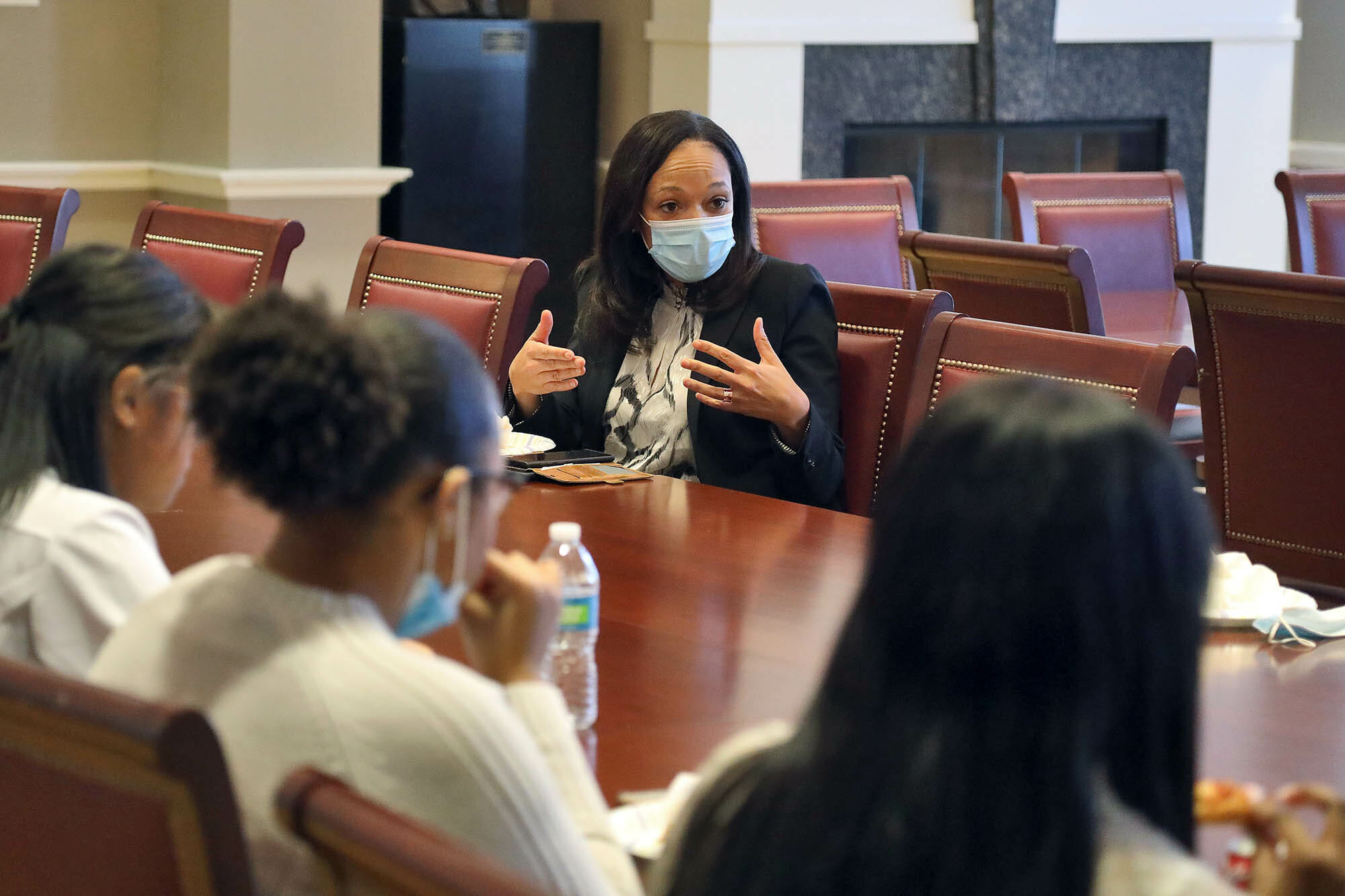It was my privilege on Tuesday morning to listen to the remarks of Monica Howard Douglas ’90 to our Upper School students and faculty in Brauer Auditorium. Ms. Douglas, who lives in Atlanta and serves as Senior Vice President and General Counsel of The Coca-Cola Company, was visiting MICDS as this year’s Erik L. Bond ’77 Lecture speaker. She spoke compellingly about her experiences as a Mary Institute student, her educational and professional journey since high school, and her maturation as a corporate leader. “Hard skills” matter, she acknowledged in reflecting on the last of these, but a strong emotional quotient (“EQ”), which she defined as “knowing your strengths and weaknesses, and managing them,” is becoming steadily more important if not essential in our world.
Several years ago, in my second year as an independent school head, I began a faculty meeting by projecting a slide with this single message in a Brobdingnagian font size:
Like many oversimplifications, it has value less as truth than as provocation. It is not so much a statement to accept as a question to ponder–and it is a question of particular and growing relevance to academically rigorous college-preparatory schools. Indeed, “academic rigor” is specifically cited in our MICDS Mission Statement, but so too are “confidence,” “compassion,” “virtue,” “purpose,” and “service,” each of which maps to EQ at least as much as it does to IQ. Is it better to be an A student who cannot communicate or a B student who can? Like many oversimplifications, this question has value less as truth than as provocation.
The student experience at MICDS is increasingly EQ-oriented. Our Responsive Classroom curriculum in the Lower School helps children understand themselves in relation to others and gives them tools to govern their behavior accordingly. Our advisory programming in the Middle and Upper Schools promotes social and emotional growth in similar terms but with adaptations that reflect the experiences of early and late adolescence. The efforts of our counselors and other Student Support Services staff are intentionally adjacent to these learning opportunities, as are, for that matter, the efforts of our coaches in establishing and reinforcing “habits of team” in their athletes and those of our performing arts leaders in instilling “habits of ensemble” in their musicians and thespians.
It has been over two years since I quoted in one of my letters to you some lines from the eighteenth-century Scottish writer Robert Burns’ poem To A Louse, so I hope I can be forgiven for referencing them again here: “O wad some Pow’r the giftie gie us / To see oursels as ithers see us!” In reflecting on Ms. Douglas’ good counsel to our Upper School students on Tuesday–to invest in “knowing your strengths and weaknesses, and managing them”–I find parallel wisdom in Mr. Burns’ good counsel “to see ourselves as others see us,” with one caveat: we should not appeal to, nor wait for, “some Power” to give us the gifts of self-awareness and self-management. At MICDS, alongside and even within our rigorous academic program, we should teach our students ever more frequently how to give these gifts to themselves.
Always reason, always compassion, always courage. I wish you and your families a very happy weekend.
Jay Rainey
Head of School
This week’s addition to the “Refrains for Rams” playlist: Wild by Spoon (Apple Music / Spotify)

